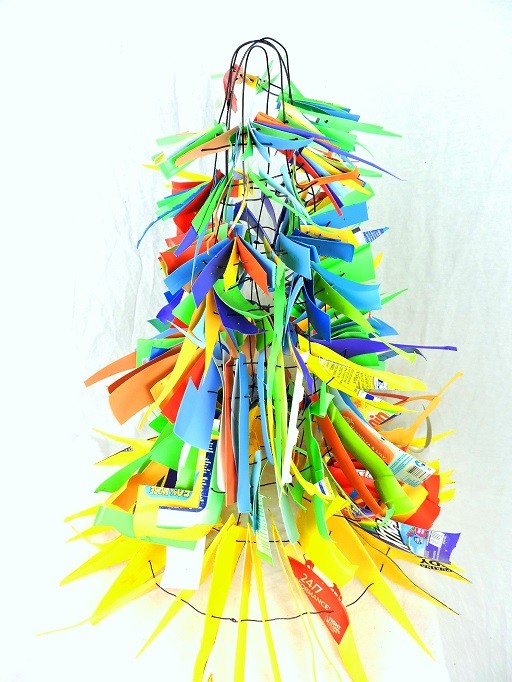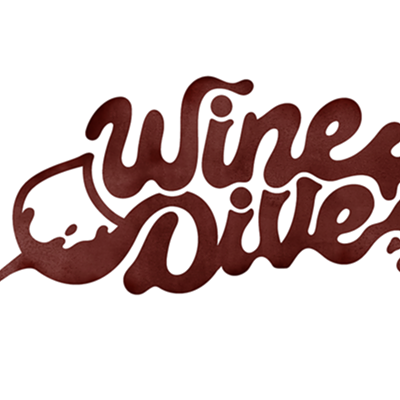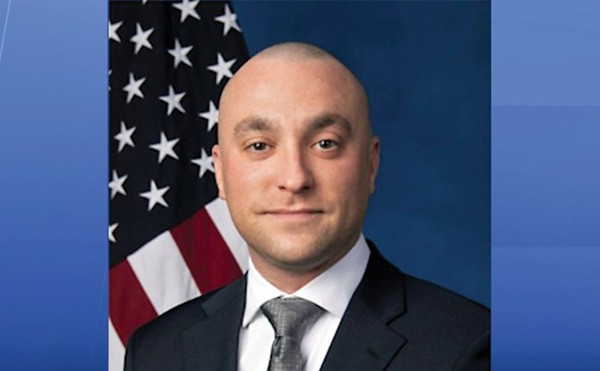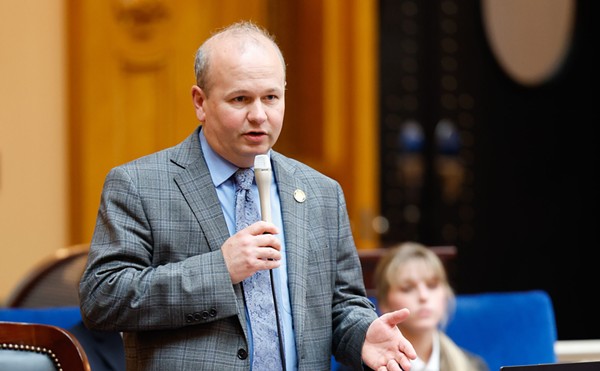High Art Fridays Hosts Artist Panel on the Sustainable Art of Plastic This Week
By Shawn Mishak on Mon, Jan 11, 2021 at 2:42 pm
[
{
"name": "Ad - NativeInline - Injected",
"component": "38482495",
"insertPoint": "3",
"requiredCountToDisplay": "5"
},{
"name": "Real 1 Player (r2) - Inline",
"component": "38482494",
"insertPoint": "2/3",
"requiredCountToDisplay": "9"
}
]
High Art Fridays joins ArtHouse Inc. this Wednesday in presenting a panel discussion on the "Art Hats" project, which is a group of local and international artists making hats out of wire and plastic waste in efforts to bolster awareness of non-biodegradable materials.
With funding from the Cleveland Foundation and The Ohio Arts council, the project has evolved into a global campaign utilizing creative contributions from Ghana, South Korea, United Kingdom, Los Angeles, California, and ten artists from Northeast Ohio, including The Visit Arts Collective. The Visit Arts Collective creates experiential exhibitions, installations and educational programs incorporating music, poetry, dance and the visual arts to engage the participant and challenge their notions of the Black experience through the arts.
Ron Shelton, a multi-media artist and the curator/publisher at High Art Fridays (HAF), continues his examination into how plastics can be transformed into visual art and how to increase awareness of the plastics crisis facing humanity.
Shelton, who graduated from the Ohio State University with a B.A. in cinematography, has focused on international artists who are transforming the environmental hazard into works of art, with the hope of bringing awareness to our society of the damages this medium causes.
“It is our goal to stimulate open dialogue on these issues, and these are areas that HAF will continue to develop," said Shelton. “We believe art can serve as a tool to enlighten and engage communities. We believe art has the power to rise above and beyond simply serving to entertain. Four years ago, I began to take note of how many artists around the globe who were answering the environmental call of how plastics is plaguing the planet.”
There have been efforts to ban single-use plastic bags around Ohio and Cleveland, since April 2020, hasn't recycled anything after its contract lapsed and it was unable to find a new vendor for its recyclable materials. Many cities have faced similar outcomes due to fiscal concerns influenced by China’s restrictions on plastics being imported into their country.
“Cleveland is representative of most U.S. cities, which do not have a concrete recycling plan in place,” said Shelton. “Once China placed a ban on imported plastic waste, this left our waste management sectors holding a huge problem. We now have to be responsible for our own waste.”
Waste aside, the current non-existent plastic program in Cleveland is a source of frustration for everyone involved. Petroleum-based plastics dominate the market because they are lightweight and easy to use but there are so many ‘bio plastic’ alternatives these days which could be utilized instead, such as olive pits, sunflower hulls, fish waste and algae, plant sugars, and corn oil which are biodegradable.
If polymer-based products and single use plastics were to be taxed, then maybe it would encourage companies trying to save a buck to consider more ecofriendly options. It makes one wonder what eventually will become of the ‘art hats’ which are made from plastic waste and how they can live on to create awareness about the destruction of our natural environment and the role plastics play in our future and the future of the planet.
“It is our plan to continue touring this collection and continue conducting workshops and talks with environmental professionals,” said Shelton.
Tags:
SCENE Supporters make it possible to tell the Cleveland stories you won’t find elsewhere.
Become a supporter today.
Scroll to read more Cleveland News articles
Newsletters
Join Cleveland Scene Newsletters
Subscribe now to get the latest news delivered right to your inbox.













